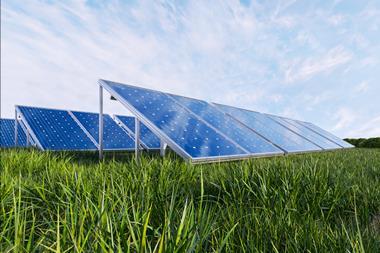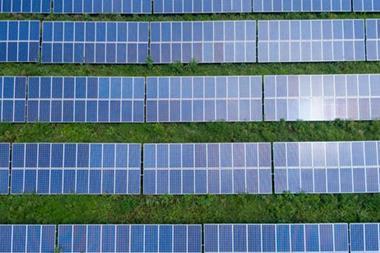Recurring lockdowns have ”exposed the weaknesses of the solar industry’s total reliance on Southeast Asia”
The COVID-19 pandemic and subsequent supply chain disruptions have pushed renewable energy sector-wide average business downtime days up by 38% on 2016 levels; reversing a downward trajectory seen in 2018 with a more than 10% rise in downtime days between 2019 and 2020.
Business interruption (BI) periods on those claims continue to lengthen, while the volume of BI claims examined remain static over the past two years.
This is according to specialist insurer GCube, a member of the Tokio Marine HCC group of companies.
Solar takes the brunt
The global solar industry has witnessed the worst effects of this disruption, with a 95% increase in average downtime days.
Recurring COVID-19 lockdowns in China, combined with a shortage of other options for the manufacture and supply of complex solar components worldwide, have exposed the weaknesses of the solar industry’s total reliance on Southeast Asia and send a clear message on the importance of diverse supply opportunities.
Fraser McLachlan, chief executive, GCube, commented: “The market continues to face challenges that are unprecedented in GCube’s 25+ years of experience working with renewable energy insureds.
”The demand for renewable energy projects and the technology, equipment and skilled labour required to deliver them has never been higher.
”But the roadblocks created by the pandemic on the world’s path towards a cleaner energy future have exposed weaknesses in the global supply chain, which must be urgently addressed.
“Preparedness will be a make-or-break component of the renewable energy developer’s business plans in today’s market, and part of that is taking reasonable ownership of the level of risk they bring to their projects.”
Supply chains must diversify
Without an industry-wide effort to diversify the solar supply chain, procurement delays and cost inflation are set to increase.
However, public and private sector investment has struggled to support growth within supply chains, which hinders both the establishment of new supply routes and infrastructure, and the development of key skills and expertise.
This lack of funded development leaves the supply chain unable to scale up its resources and its personnel to accommodate the growing demands of the sector.
This is a particular challenge for contractors, who face pressures to stretch resources and drive down their rates to capture emerging opportunities.
GCube predicts an increase in contractor quality claims over the coming months as OEMs struggle to accommodate the strain on their resources and rates.
“In evidencing these challenges within the supply chain, we hope our latest insights report provides a beneficial tool for us, as an industry, to consider how we can work together to better prepare ourselves for what is yet to come,” added McLachlan.
”As we expect disruption to become more concentrated, GCube continues to provide the market with unparalleled support and expertise through its commitment to sharing its knowledge to the benefit of its insureds, and the wider renewables industry.”




















No comments yet